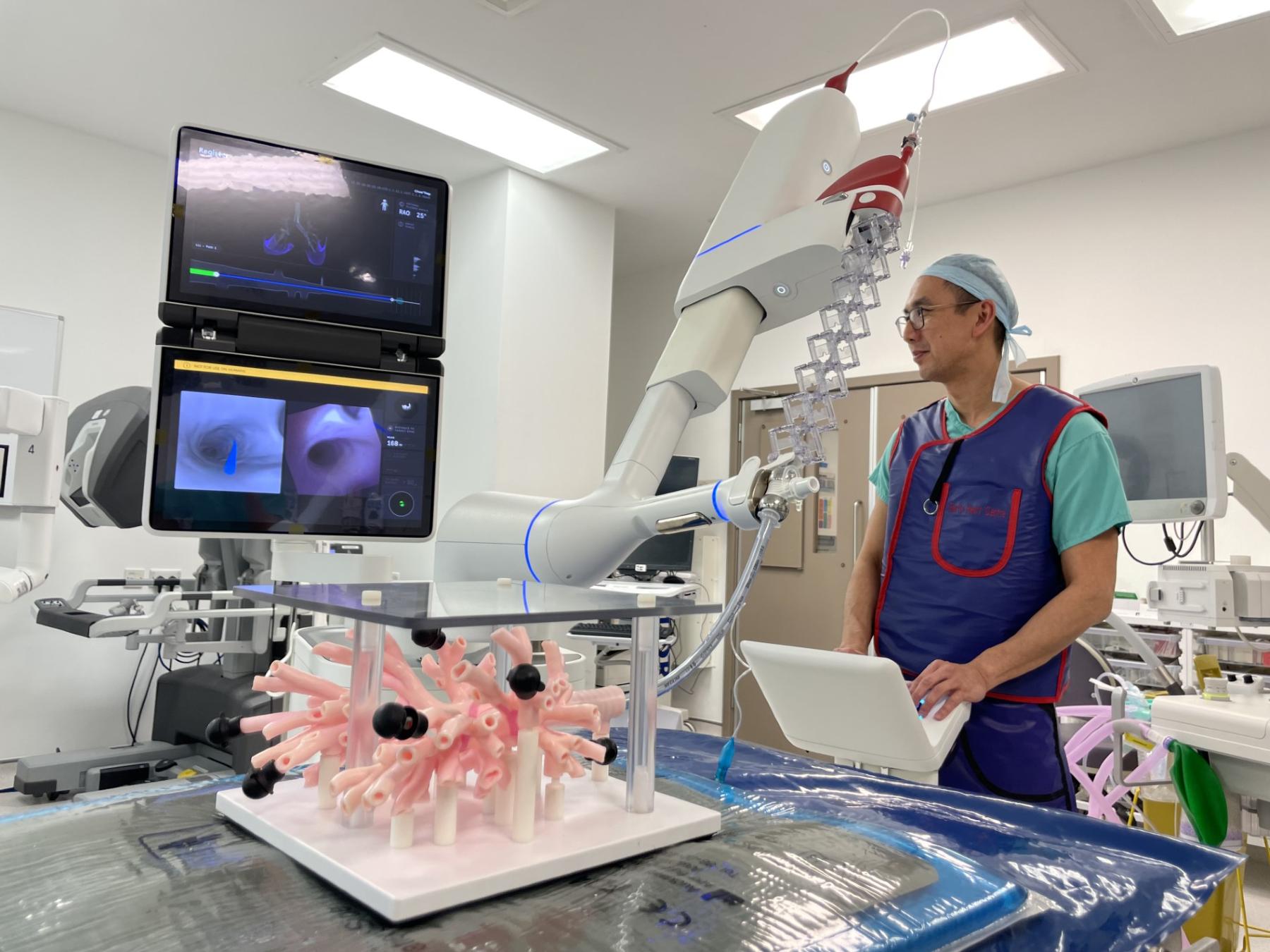Robots help our doctors diagnose cancer sooner

A robot that can reach suspect tumours in the lungs could diagnose cancer much earlier, reducing anxiety for patients and speeding up treatment.
The technology, used for the first time in the UK at St Bartholomew’s and Royal Brompton hospitals, sees clinicians insert a thin and highly manoeuvrable catheter with a camera on the end into the lungs via the mouth and navigate to a potentially cancerous growth or lung nodule.
Lung cancer is the third most common cancer in the UK but is difficult to spot due to the complex network of tiny airways. More than two-thirds of cases are diagnosed at a later stage of progression, leading to more advanced disease.
The Ion Endoluminal System from technology company Intuitive creates a 3D roadmap of the lungs, directing doctors – much like a car’s sat-nav – to hard-to-reach areas with more precision than ever before.
This approach, which requires no incision, is less risky than other biopsy techniques in which a needle is inserted from outside the body into the lungs, potentially hitting blood vessels and puncturing the lung.
And whereas some nodules would be monitored for long periods for signs of cancer, clinicians can now take a small sample of tissue – known as a biopsy – which is sent to the lab, with the results usually available within five days.
Teams from both London hospitals are participating in a clinical study looking at the impact of the technology on early diagnosis. Each hospital will recruit around 50 patients with suspicious nodules that have been detected on computerised tomography (CT) scans.
St Bartholomew’s consultant Kelvin Lau (pictured) said: "The UK is leading the way in lung cancer screening. However, only some of the lung nodules identified are cancerous and need treatment. Current biopsy techniques carry risk and are not always accurate, and many patients end up waiting for a repeat scan. The uncertainty of the wait causes anxiety and could allow a cancer to grow and spread.
“I now have the precision and stability to lock onto a very small lung nodule and obtain an accurate biopsy quickly and safely. This could transform early diagnosis and treatment, reduce the need for repeat scans and treat lung cancer earlier.”
Professor Pallav Shah, consultant respiratory physician at Royal Brompton Hospital, said: “When we see patients with cancerous lung nodules of more than 30mm, their five year survival rate is around 68%, but if we are able to detect these nodules at a smaller size, when they are less than 10mm in size, we are looking at a 92% survival rate.”
Margaret French, 67, was diagnosed as part of the study after being screened at an NHS lung truck in Essex which spotted a shadow on her right lung. She is set to have keyhole surgery in the coming weeks to remove the tumour.
She said: “After being referred to King George Hospital, Mr Lau told me about this trial and the new technology. I asked if he thought it was better, and he said 'yes'. He’s doing it every day, so he should know.
“I went in for the biopsy, I arrived at 7:30, and it was fantastic. I was on the train home by 13:20. You never want to need surgery, but as it’s a small piece to remove, they can do it without cutting me open. The care has been really good.”
This story featured in the Telegraph, Independent, Mail Online and Evening Standard.
Pictured: Kelvin Lau demonstrates the Ion technology on a model of the lungs and below: the Ion technology in action, also on a model.

